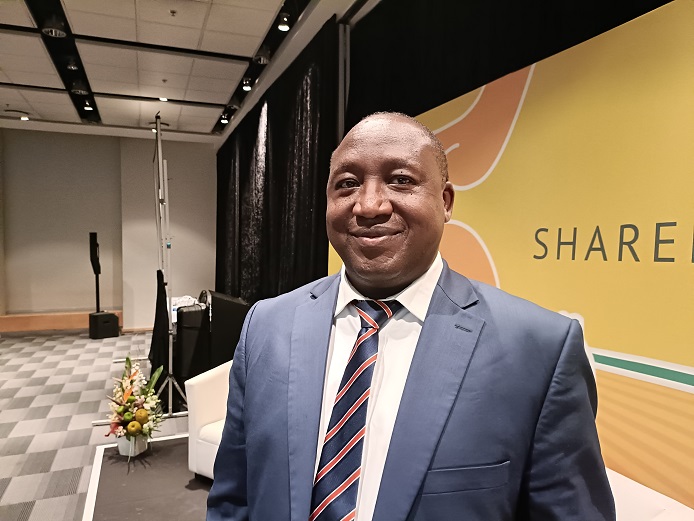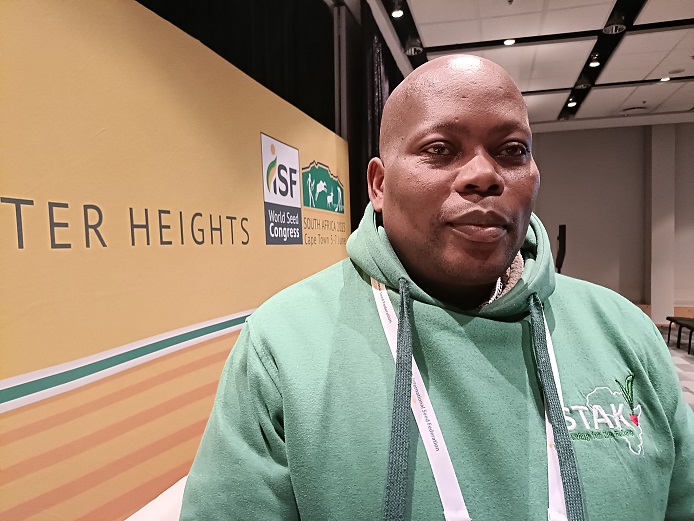
By Henry Mangome I sciencejournalist2021@gmail.com
Leading lobby groups attending the World Seed Congress in Cape Town have called for close cooperation between them, seed companies and government to increase the uptake of new seed varieties in Africa.
Stephen Muchiri, Chief Executive Officer of Eastern Africa Farmers Federation (EAFF) who represents nearly 25 million farmers, said that seed companies hardly involve farmers when deciding on what crops to research on and breed.
His remarks were shared by Gerald Masila, Executive Director of Eastern Africa Grain Council (EAGCC) with a membership of about four million individuals.
The two experts were making contributions in a panel discussion titled Agri-Food Value Chain Opportunities in Africa and Beyond.
Seed companies, they said, should work with other actors in the value chain to participate in formulating and hence recognising government policies for the attainment of food security as well as in enhancing uptake of new technologies.

Muchiri also accused the government of introducing punitive regulations and taxes that stifle farming.
Masila added that there is a big disconnect between the private and the public sectors in seed varieties breeding, which has often led to poor uptake of the new varieties.
He advised breeders to first identify the market demands before deciding on varieties to breed to reverse the trend where investors and donors are the key decision makers, leading to farmers rejecting varieties on offer.
“Market should be the springboard for research undertaking and not the other way round,” said Masila.
He said that farmers hardly adopt new seeds and technologies due to poor communication by the seed sector and distorted information by sources outside the industry.
“The agenda in breeding must address the needs of key stakeholders right from the consumers to the needs of the farmer, be they yield or consumer preferences, for acceptance of the final product,” said Masila.
He said that low research and investments by public institutions have resulted in external investors and private seed companies setting their own agenda in breeding, leaving out farmers in decisions made.

According to a report by The African Seed Access Index (TASAI), a seed industry research body, the number of varieties sold in 2017 vis a viz varieties released between 2000 and 2017 in Nigeria stood at 33 per cent for maize and 46 per cent for sorghum. For Kenya maize scored 21 per cent and sorghum 37 per cent.
According to Mainza Mugoya, the Regional Coordinator at TASAI, calculating the level of acceptance and uptake of new varieties in Africa remains a grey area because not all countries have updated national variety catalogues. He added that when the private sector releases a variety, they do not always market it immediately as they may first want to test the market before producing large quantities and this may take time.
Muchiri said that for sustained growth of the certified seed sector, governments should stop their dictatorial policies, which leave farmers reeling from the effects of one-sided decisions.
“Government needs to be the convenor and not competitor of the seed sector, with farmers at the centre to ensure correct information flow. Be the regulator and play the oversight role but don’t be dictatorial,” he said.
“Farmers are left on their own and we as an association find it hard to show that we have the backing of everyone in the value chain. This calls for joint lobbying for policies and other matters affecting the seed sector.”
Responding to the concerns by the lobby groups, Seed Trade Association of Kenya Executive Officer Duncan Onduu said that his association is ready to work with farmers and they have already begun to consult with the Kenya National Farmers Federation.

Onduu said it pays to bring farmers on board whenever issues of research arise so that they stay in sync with the research agenda for the realisation of food security.








